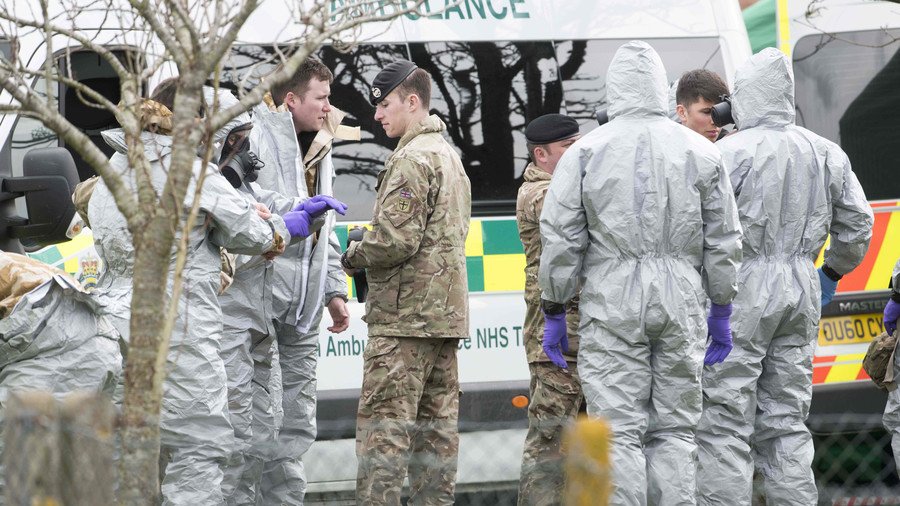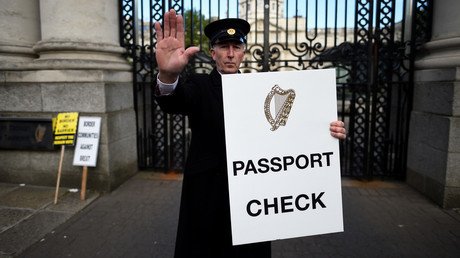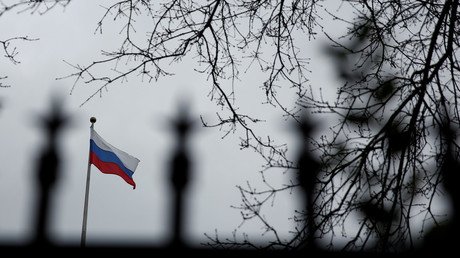UK government needed good spy scandal after Brexit fallout – Russian rep to EU

The British government needed “a good old-fashioned spy scandal” amid tensions following Brexit, Russia’s ambassador to the European Union said in the interview to RT.
Vladimir Chizhov said that although the UK managed to split the EU on the issue of expelling diplomats, the hysteria has not gripped the business community.
London can hardly be satisfied with the outcome of its call for punishing Russia over the Skripal case allegations, the official believes, as the mass expulsion of diplomats has shown disarray among the UK’s allies instead of demonstrating unity.
“I don’t think [the] British government should’ve been satisfied with this, because they are now saying that… so many countries have shown solidarity with Britain through the expulsion of Russian diplomats – if you look at the picture, they have managed to split the European union in a way Russia never could or never intended to, because half of [the] member states did not support that view of the UK, and did not follow with similar measures,” Chizhov said.
The Skripal scandal came at a “very opportune time for the UK,” Chizhov noted, as London has been riddled with multiple Brexit-related issues, lacking not only understanding with its European partners, but unity within its own government.
Chizhov noted that one of the major issues troubling the UK government is the complicated situation over the border of Ireland and Northern Ireland. “British public opinion is certainly still split over the Brexit issue,” he said.
Trans-Atlantic relations of the UK are also strained in the moment, namely with the new US tariffs on steel and aluminum. “The situation is quite complicated, one could say, that what was lacking on the shores of Albion was the good old-fashioned spy scandal,” the diplomat said.
The scandal has a feel of being orchestrated from the beginning, Chizhov said, as the UK has not shown any interest in finding out the truth behind the incident or substantiating their allegations, promptly moving on to blaming Russia.
“It all started with the British government blaming Russia for the tragic incident, not only before the investigation was completed but before it even started. Scotland Yard itself said it would take weeks and the OPCW [Organization for the Prohibition of Chemical Weapons] said it might take months to reach a conclusion. But I have the impression that the British government never wanted a conclusion, that it had its own decision ready well in advance,” Chizhov stated, adding that the “swiftness” with which a number of countries followed the lead of the UK and US was really “disappointing."
The strategy of isolating Moscow by slapping it with sanctions over mere allegations, however, has not been successful, the diplomat said. He added that the Western business community had not been “gripped” by anti-Russian hysteria and continued to cooperate with Russia.
The ongoing anti-Russian campaign, Chizhov believes, was triggered by the recent geopolitical achievements of Moscow, and is “partly jealousy, partly long-standing animosity,” with roots in the Cold War era. A new full-blown Cold War, however, is unlikely, as the key component for such antagonism is long missing.
“I think, the Cold War in its original, classical sense was the conflict of two ideologies. We don’t have a conflict like that anymore,” he said.
Half of the European Union’s member states, as well as the US and other countries, moved to expel Russian diplomats over the Skripal scandal on Monday. The decision was based on mere allegations, as no evidence has surfaced since the March 4 incident in the British town of Salisbury, where former double agent Sergey Skripal and his daughter Yulia were poisoned. Top UK officials have repeatedly accused Moscow of targeting the ex-spy with a military-grade nerve agent.
Think your friends would be interested? Share this story!
















